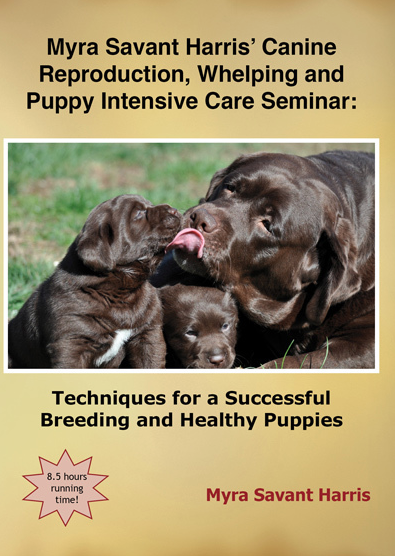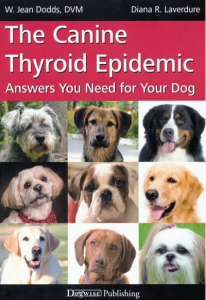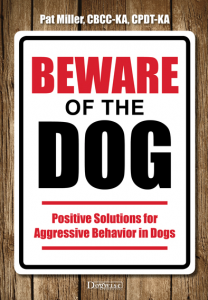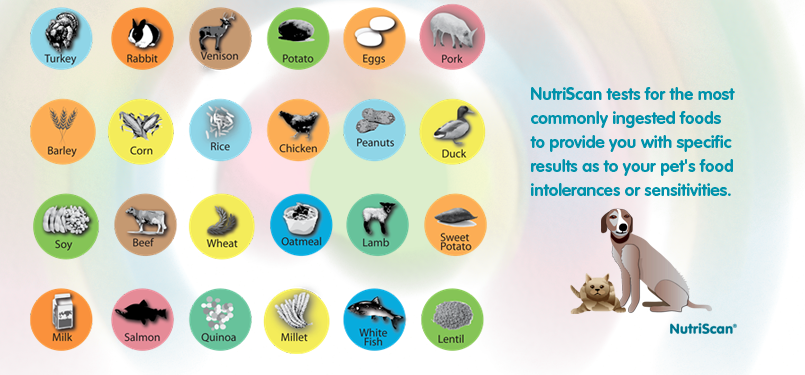120 – Canine Vaccinations with Dr. Jean Dodds – Part 4
Dr. Jean Dodds – All About Canine Vaccinations
In Pure Dog Talk Episode #120, we talk with Dr. Jean Dodds about the canine vaccination controversy and her recommendations to consider for your dog.
Hemopet and Canine Vaccinations
Protocols, Q & A, and further information on canine vaccinations from Jean Dodds can be found at Hemopet.org.
Pure Dog Talk Series with Dr. Jean Dodds
Here are the other episodes with Dr. Jean Dodds:
Episode 118 – Thyroid Epidemic in Dogs
Episode 116 – Wholistic Medicine
Episode 114 – Saving Dogs Lives: Canine Blood Bank
Author of the Week – Myra Savant Harris
Myra Savant Harris has released a new DVD series based upon her successful seminars. Thanks to Dogwise.com for giving us another great product.
MYRA SAVANT HARRIS’ Canine Reproduction, Whelping, and Puppy Intensive Care Seminar: Techniques for a Successful Breeding and Healthy Puppies

Attend Myra’s Breeding Seminar Without Leaving Home!
Myra Savant Harris’ breeding seminar that she has given to clubs and breeders throughout the country is finally available as a comprehensive 8 hour recorded seminar. Myra applies scientific approaches to every aspect of breeding, dispelling a number of popular myths along the way.
She explains how to:
•Set up the ideal conditions for your stud dog to thrive
•Calculate when ovulation occurs, and the ideal time to breed
•Determine when a C-Section really needs to happen
•Know what the ‘green discharge’ actually is
•Use the accordion technique and a delee to resuscitate puppies
•Enhance milk production, encouraging the puppies to latch to the breast, and when to tube feed or use formula
•Deal with common conditions such as mastitis, pyometra, eclampsia, and canine herpes
Along with great anecdotes and stories from Myra’s own experiences and breeders who she has worked with.
Myra Savant Harris, R.N. is the author of four books including Puppy Intensive Care and Canine Reproduction and Whelping. Myra combines her life-long interest in animals with her professional experience as a labor delivery nurse to bring breeders priceless information on reproduction and whelping. The hundreds of seminars Myra has given throughout the country have given breeders the skills, knowledge, and confidence to have healthy and successful litters. She lives in Tacoma, Washington with her husband Doug Harris, and her dogs.
118 – Thyroid Epidemic in Dogs: Dr. Jean Dodds #3
Thyroid Epidemic in Dogs: What it is and Why it’s Important
My breed, the German Wirehaired Pointer, is currently ranked number 10 of all breeds for prevalence of this autoimmune disorder. And that’s progress! Ten to 15 years ago, it was ranked second. I learned about all of this the hard way at the beginning of awareness regarding OFA testing for autoimmune thyroiditis in the late ‘90s. My foundation bitch, originally tested clear in an in-house test of t3/t4 only, came back equivocal in the OFA test. In other words her thyroid hormone levels were out of whack, although fortunately she was negative for the TGAA (Thyrogobulin Auto Antibody) that would indicate that her body was attacking itself.
I have had to work twice as hard in my breeding program to weed out this disease occurrence than I would have, had I known then what I know now. A number of beautiful animals were washed out of the breeding program when they failed to come back clear for thyroid. I am so grateful to Dr. Dodds for her work in this area. It has enabled me to not “throw out the baby with the bath water” in my breeding goals.
But my early personal experience taught me the value of what Dr. Jean Dodds has to share in this podcast. Please, take 30 minutes out of your life and do your breed a favor. Listen to what Dr. Dodds has to say here.
The primary points of Dr. Dodds’ interview are as follows.
The thyroid gland is a “master gland.” It is regulated by the pituitary gland. Eighty percent of processing of thyroid hormone occurs in liver. Individual animals might have primary hypothyroidism in which the thyroid gland itself is not functioning properly or secondary hypothyroidism, in which the organs which process the hormone are not working.
We get a primer course in the basics of autoimmune disease. Essentially, the body attacks itself. This is a genetically inherited trait which frequently has environmental triggers.
In people and in dogs, what is heritable is the *propensity* for the body to attack itself, not the specific autoimmune disease. In other words, just because low thyroid is cheap to medicate and not “life threatening” in and of itself is NOT an acceptable reason to continue using those dogs in a breeding program. Other, more serious and often fatal, autoimmune diseases frequently occur in future generations. Dr. Dodds describes breeding affected hypothyroid dogs as a “ticking time bomb.”
Dr. Dodds describes hypothyroidism as consisting of four interlocking circles — inheritance… vaccines as triggers… stress… sex hormonal change … The triggers can cause disease to express itself that is hidden otherwise. Nutrition is at the center of that circle. Common thyroid disease has many indications.
What are indications of thyroid disease in dogs?
Some early signs of thyroid disease are: “easy keeper,” changes in cognition/“growly owly,” changes in hair texture, chronic ear/skin infections, chewing the feet, leaky gut. Only when 70 percent of thyroid function is destroyed do we see classic symptoms of obesity, aggression, patterned hair loss, cold intolerance and more.
Dr. Dodds recommends establishing a baseline for our dogs in the breeding program at the onset of puberty. For bitches 12-16 weeks following the onset of the first heat cycle. For dogs between 10 and 14 months of age depending on the breed. Dogs, particularly from breeds with a family history of the disease, should be re-checked every year until six years of age.
She also suggests maintaining a minimal vaccine protocol, avoiding heartworm/fleas/ticks preventatives if possible and good nutrition. (For more information on nutrition, listen to the second installment of this series. Next week Dr. Dodds will discuss vaccine protocols.)
Finally, for dogs affected by hypothyroidism, Dr. Dodds indicates the most effective treatment is to divide the dose and give it twice daily. And urges owners to not give the medication with any food containing calcium or soy, as this makes the medicine ineffective.
Summary: Weight gain, hair loss, and behavior changes are symptoms of thyroid problems. Learn how to recognize and get treatment for this underdiagnosed and misunderstood malady. Easy-to-read text with color photos and case studies to help you help your dog!
Author of the Week: Pat Miller
Pat Miller has been a dog trainer for over thirty years. She is the founder of Peaceable Paws Dog & Puppy Training Center and is on the Board of Directors of the Association of Pet Dog Trainers. She is a leading proponent of positive dog training techniques, and her columns on training are read by thousands in publications such as Whole Dog Journal. She is the author of Play With Your Dog; The Power of Positive Dog Training; Positive Perspectives, Love Your Dog, Train Your Dog; and Positive Perspectives 2, Know Your Dog, Train Your Dog.
116 – Wholistic Medicine with Dr. Jean Dodds – Part 2
In Part 2 of Pure Dog Talk’s Dr. Jean Dodds series, Jean discusses Wholistic Medicine, food as medicine, and how to test your dog for food sensitivities.
Wholistic Medicine – How traditional medicine works with conventional medicine
Dr. Dodds quotes Hippocrates:
Let food be thy medicine and medicine be thy food – Hippocrates
Food As Medicine
Food should be dense, have variety, be readily available and safe.
Every animal’s genomic structure is unique. Historically, dog’s were carnivorous. As dogs followed man, they ate scraps and cereal or grain was added to their diet. The dog genome changed from the original wolf genome. But basically dogs are still carnivorous and require whole meats – bones, organ, tripe, flesh, and muscle.
Diet Preferences: In order
- Raw is the first choice – either fresh, freeze dried, or frozen.
- Homemade Balanced Diet – Grain and Gluten-free, no wheat, corn or soy.
- Grain-free Premium Dry with Grain-free Premium canned food added.
Food Intolerances – Nutriscan Test
Dr. Jean Dodds created Nutriscan, to test for food intolerance and sensitivities for dogs and cats. Based on unique results, appropriate diets can be recommended.
Food Sensitivities – How Do I Know?
Dr. Jean says that if your dog is itching, excessively biting or chewing on himself, or rubbing his face that food sensitivities should be tested.
Another sign is gas. Listen to your dog’s belly to hear if there is excessive gurgling. We have all had an upset stomach so listen to your gut instinct.
Don’t Miss Next Week! Thyroid with Dr. Jean Dodds
Here is a teaser from Dr. Jean on her Dogwise Book – The Canine Thyroid Epidemic – Answers You Need for Your Dog.
114 – Saving Dog’s Lives: Canine Blood Bank with Dr. Jean Dodds – Part 1
Dr. Jean Dodd’s – Part 1 – Canine Blood Bank
Welcome to Pure Dog Talk’s 4 part series with Dr. Jean Dodds, DVM. In this episode #114 Saving Dog’s Lives: Canine Blood Bank, Dr. Dodds introduces us to how the first canine blood bank originated.
Jean packs an immense quantity of breeder information on blood types, herpes, plasma and more in this episode that I can’t begin to summarize it all… you will just have to listen!
Hemopet – the Canine Blood Bank
Founded by Dr. Jean Dodds, Hemopet provides state-of-the-art blood components and supplies for transfusions to veterinary clinics nationwide.
Hemopet also is a diagnostic testing lab that specializes in thyroid testing which will be featured in Part 2, Episode # 116.
Resources from Hemopet:
Greyhound Adoption from Hemopet Blood Bank
Greyhounds are the primary blood donors for the blood bank. Highly screened for infectious disease and tested prior to inclusion in the blood donor program, these gentle dogs give so other dogs may live.
4 -5 Greyhounds cycle out of the Hemopet program each week and are available for adoption. Find out more at Hemopet.org.
Book Bonus: Canine Nutrigenomics by Dr. Jean Dodds
Listen to our book bonus near the end of episode #114, as Dr. Dodds talks about writing and publishing her two books. We cover Canine Nutrigenomics: The New Science of Feeding Your Dog for Optimum Health today, and next week we cover The Canine Thyroid Epidemic.
Dogwise Books – All Things Dog
For our listeners that are unfamiliar with Dogwise Books, Larry and Charlene Woodward have been publishing books for the dog fancy since the 1980s. Dogwise is a small company out of Washington state that deserves our support. Many of our favorite books, especially breed-specific and training books, would never be in print without Dogwise.







